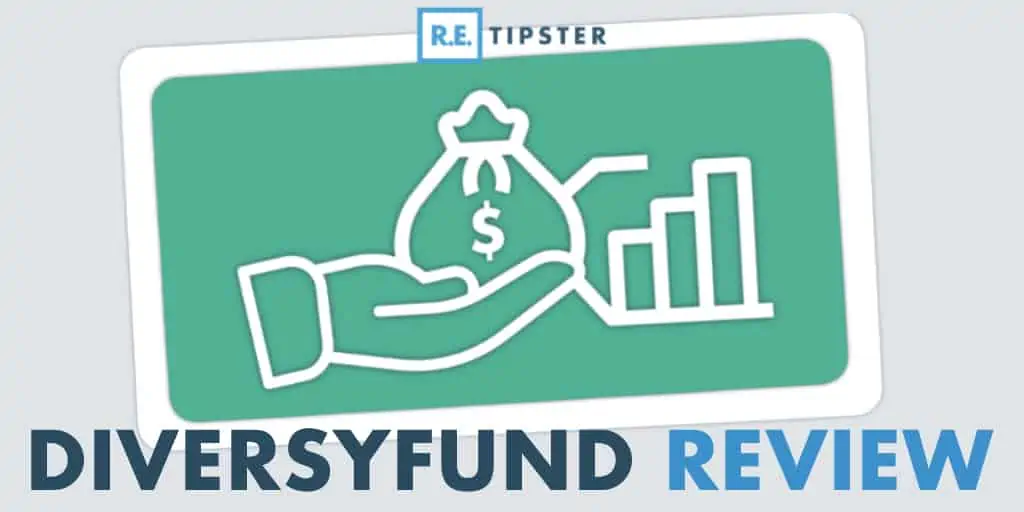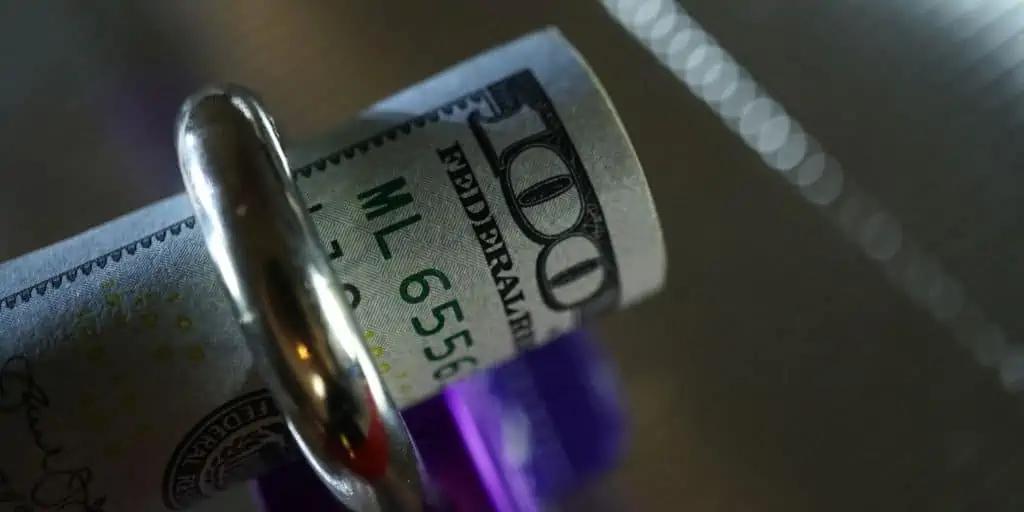
REtipster features products and services we find useful. If you buy something through the links below, we may receive a referral fee, which helps support our work. Learn more.
Another option among the growing field of real estate crowdfunding platforms, DiversyFund offers a long-term investment with all the returns promised at the end.
That means no dividends or distributions over the five or more years you hold your investment. But on the plus side, anyone can invest, not just wealthy accredited investors.
Before committing cash, take some time to understand this unusual crowdfunding investment.
DiversyFund Rating
-
Overall Rating
Summary
DiversyFund takes a unique approach to real estate crowdfunding, foregoing all passive income and requiring you to leave your money invested for at least five years.
In return, they aim to pay out 10% to 20% annual returns. But even if they deliver on those returns, are the downsides and limitations worth it?
Pros
- Non-accredited investors allowed
- $500 minimum investment
- Strong potential returns
- Passive & automated
- Desktop & mobile access
Cons
- No liquidity
- Long-term commitment
- No income yield
- Opaque fees
- Uninspiring return split
- No flexibility or options
- Limited portfolio
- Lack of information on website
What Is DiversyFund?
DiversyFund operates public non-traded REITs, which own multiple properties. You buy shares in the REIT (real estate investment trust), which, in turn, gives you exposure to all properties it owns.
However, you don’t know what those properties will be. DiversyFund uses a blind pool fund model, which attempts to raise the money first and then go out and buy properties. However, you can view its past and present properties owned in previous funds.
It aims to buy large multifamily properties with over 100 units apiece, force equity by renovating them, raise rents and hold them for four-to-six years, and then sell them for a hefty profit. In that regard, it operates similarly to a value-add real estate syndication.
As it sells off each fund’s properties, it closes out that fund and pays investors their returns. DiversyFund opens a new fund each year to raise money and buy new properties.
How DiversyFund Works
You buy shares in DiversyFund’s current REIT offering, and it uses those funds to buy and renovate multifamily properties. In addition to raising money from investors like you, DiversyFund uses leverage to help fund acquisitions.
With both a desktop website and mobile app, DiversyFund makes it easy to create an account and invest. Like other crowdfunding apps, you simply enter your personal details to satisfy U.S. banking “Know Your Customer” laws, connect your bank account, and select how much you want to invest. DiversyFund requires a minimum investment of $500 (50 shares, priced at $10 apiece).
While REITs technically require at least 90% of profits to be returned as dividends to investors, DiversyFund skirts that rule by requiring all dividends to be reinvested back into its fund.
You receive your returns after five years or more when it sells off that fund’s properties and closes it. The first 7% in annualized returns go directly to passive investors as a preferred return, before DiversyFund can start earning its portions of the return. Returns above 7% get split 65/35, with 65% being divided proportionately among passive investors, and the other 35% going directly to DiversyFund. Above a 12% annualized return, the split changes again to 50/50. Among real estate syndications, this kind of variable return split is called a “waterfall.”
You cannot redeem shares early—hard stop.
DiversyFund charges several fees, which isn't abundantly clear on its website. For example, there is a 2% 2% annual assets-under-management (AUM) fee and developer fees of 2% to 4% for each project. That does not include property management fees.
DiversyFund Pros
Like all investments, DiversyFund has its upsides. Here’s why investors opt into DiversyFund.
Non-Accredited Investors Allowed
All U.S. residents over 18 can invest in DiversyFund. That makes it more accessible than many crowdfunding platforms that only allow accredited investors.
Relatively Low Minimum Investment
With a minimum investment of $500, that again leaves DiversyFund accessible to middle-class investors. Some alternatives, such as Streitwise and RealtyMogul, require minimum investments of $5,000.
If you were to invest directly in real estate syndications, you could expect minimum investments ranging from $25,000 up to $100,000 or more.
Strong Potential Returns
DiversyFund targets an internal rate of return (IRR) of 10% to 20%, net of fees.
That beats the S&P 500’s historical average return of around 10% but falls short of many private real estate syndications’ returns.
Passive and Automated
Like most real estate crowdfunding investments, you invest completely passively. You simply transfer money in, and DiversyFund does the rest.
You can also set up automated recurring investments if you like, to keep investing on autopilot.
Desktop and Mobile App Access
Some real estate crowdfunding platforms only offer a website login or a mobile app. DiversyFund offers both, and both are intuitive and easy to use.
DiversyFund Cons
While that all sounds great, what about DiversyFund’s drawbacks?
Unfortunately, there are quite a few.
No Liquidity
Once you buy in, your money is locked away and untouchable. DiversyFund doesn’t offer an early redemption option to sell shares, not even for a penalty fee.
Long-Term Commitment
That lack of liquidity doesn’t sting as much on short-term investments like hard money loans on Groundfloor, which only last three to 12 months on average.
But DiversyFund locks up your money for at least five years. And that’s the minimum—there's no guaranteed time frame for returning your capital. You hand over your money with no promises of when you’ll get it back.
No Passive Income
I love passive income.
Sure, it can help you reach financial independence and retire early. But with relatively new crowdfunding platforms that haven’t exactly stood the test of time, ongoing income gives you some reassurance that they’re earning (and returning your) money.
It’s a hard pill to swallow when DiversyFund takes your money for five or more years and doesn’t give you a cent in the meantime.
Opaque Fees
DiversyFund claims transparency, but they don’t list fees on its website. Instead, they bury them in an SEC offering circular among dozens of pages of legalese. Ain’t nobody got time for that.
To further illustrate the point, many online reviews of DiversyFund rave that it charges no fees. That is simply not true—DiversyFund charges an annual AUM fee of 2%, plus developer fees, which says nothing of other expenses like property management fees.
Uninspiring Waterfall
The waterfall—the breakdown of how returns are split between passive investors and the sponsor—tilts in favor of the sponsor (DiversyFund).
Sure, it offers a preferred return of 7%. But for returns between 7% to 12%, it takes a 35% cut off the top and half of all returns over 12%. Woof.
No Flexibility to Choose Investments
At any given time, it only offers one fund. You invest your money in it blindly, without knowing what properties it will own.
That’s it.
Limited Portfolio
DiversyFund currently owns 12 multifamily properties in six states across various funds. At this time, it appears that it has sold one property.
You’ll only gain fractional ownership in a handful of properties when you invest. That hardly makes for a diversified real estate portfolio.
Lack of Information on Website
I was surprised at how little explanation there was on DiversyFund’s public-facing website. There's no explanation about its investing strategy in detail, or the nuts and bolts of how investing with it works. DiversyFund doesn't even brag about past returns, much less explain its fee structure.
After I created an account, I got access to a little more information, but still not the amount I’ve come to expect from other real estate crowdfunding websites.
All in all, I was not impressed by its transparency.
I also dislike its aggressive content marketing strategy on other websites. A little while back, while writing for another personal finance website, I was asked to write a review of DiversyFund. But the review itself was sponsored by DiversyFund, creating a clear conflict of interest. It makes you wonder how many DiversyFund reviews are simply advertisements in disguise.
How DiversyFund Compares
DiversyFund can theoretically compete with platforms like Fundrise and Groundfloor on returns. I say theoretically because it hasn't actually returned any money to investors yet.
DiversyFund aims for 10% to 20% returns on a $500 minimum investment. It has no early redemption program, leaving your money locked up for five or more years. You won’t receive a dime of income during that time, and you can’t choose among investments.
In 2021, Fundrise delivered an average return of 22.99%. The average return delivered over five years was 11.78%. Those returns included both dividends and appreciation, with many options for investing (see Seth’s full review of Fundrise for more details). Fundrise offers an early redemption option, with only a small penalty (1% on some investments, no penalty on others). Oh, and Fundrise requires a minimum investment of only $10.
On Groundfloor’s platform, you can pick and choose hard money loans to invest in, with as little as $10 apiece. Interest rates on these loans typically range from 7% to 16%, occasionally higher. While there’s no early redemption option, the loan terms are short, usually three to 12 months. If you want full liquidity, you can invest in its Stairs fund, earning 4% to 6% interest with the ability to withdraw funds at any time. See our review of Groundfloor for more information.
Likewise, Concreit offers a similar fund paying 5.5% interest with liquidity.
Or try LEX Markets, another real estate crowdfunding platform with full liquidity. It lets you buy and sell fractional shares in commercial and mixed-use properties. The minimum investment: the price of one share (around $250 for most properties).
Accredited investors can find more flexibility and options on CrowdStreet while earning similar or higher returns.
You can see why it’s hard to get excited about DiversyFund. What does it offer that you can’t find elsewhere with more flexibility, income yield, better liquidity, or all of the above?
Final Thoughts
For all its drawbacks, DiversyFund offers one more option to spread your money among real estate investments and potentially earn high returns.
If you don’t mind locking up your money for five-plus years, consider DiversyFund one more way to diversify your real estate portfolio. Just don’t expect any income yield, liquidity, or flexibility.














